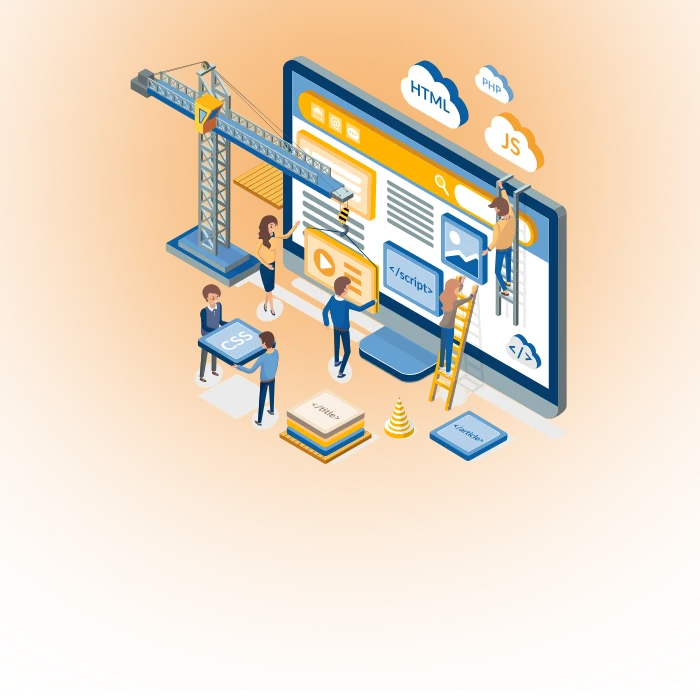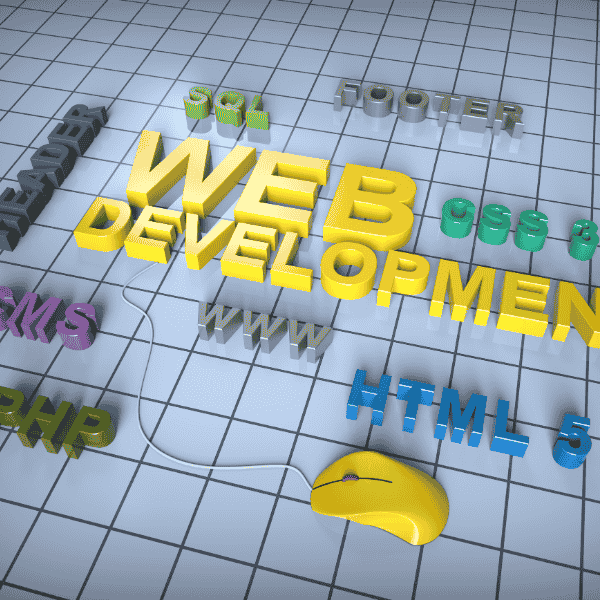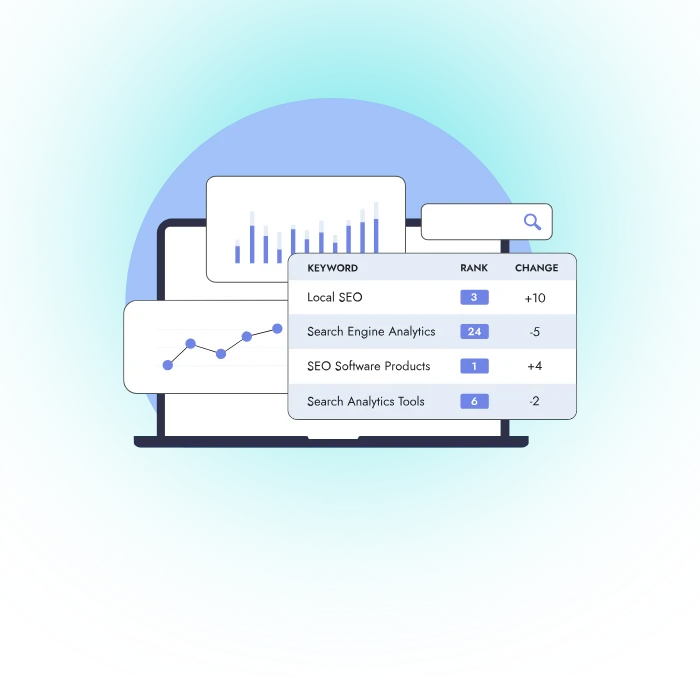Introduction
In today’s digital world, having a robust online presence is critical for plumbing companies and individual plumbers to reach customers and grow their business. An effective, well-designed website allows you to market your services 24/7, establish credibility, provide valuable information to customers, and generate new leads and sales.
However, building a custom plumber’s website requires significant time, planning, and financial investment. Costs can escalate quickly depending on the complexity of your site’s design, functionality, and long-term maintenance needs.
In this comprehensive guide, we will break down the key factors that influence the cost of creating a plumber’s website. Whether you are a solo plumber, a small family business, or a larger plumbing company, you’ll get an in-depth look at how to budget for a website that aligns with your specific business goals, target audience, and brand positioning.
You’ll learn cost estimates for:
Basic websites with minimal pages
Intermediate websites with more advanced design and functionality
High-end websites with complex custom features
Additional costs beyond initial development
Ways to maximize return on investment
Let’s dive in to determine the right website investment for taking your plumbing business to the next level online.
Key Factors That Determine a Plumber’s Website Cost
Several crucial factors impact the total cost to create, launch, and maintain an effective plumber’s website:
Website Design Complexity
Simple websites with just a few basic informational pages tend to cost much less than sophisticated sites with:
Abundant visuals like high-resolution photos, videos, and graphics
Animated elements, illustrations, and interface effects
Detailed page layouts requiring custom CSS coding
High-end themes or templates
Complex custom designs require more upfront graphic and web development time, driving costs upward.
Custom Functionality
The functionality and features you want will expand development efforts. Unique elements like:
Online appointment booking or scheduling
Service estimators or pricing calculators
Customer logins and accounts
Service area maps
Reviews and testimonials
Online payment integration
Automated notifications and reminders
Live chat
CRM, accounting, or email marketing integrations
All add programming time and complexity compared to a standard brochure-like website: the more custom features, the higher the price tag.
Platform and Technology
Your choice of the website platform, framework, and technical elements affects the cost:
CMS platforms like WordPress or Squarespace have different price points for themes, extensions, and customization capabilities.
Custom-coded sites tend to cost more than pre-built CMS frameworks.
Responsive mobile optimization is essential for today’s web usage.
E-commerce functionality like shopping carts adds development work.
The technology decisions made during planning and design impact overall cost and scalability.
Content Creation
The text, visual assets, and media components of a website have creative and human resource costs:
Original, high-quality website copywriting is typically charged per page or hour.
Custom images and videos are more expensive than stock assets.
Page layouts impact how much content is required.
Technical writing for aspects like service pages also has costs.
Factor in these content creation expenses in addition to web development.
Ongoing Site Maintenance and Hosting
Don’t overlook the long-term costs associated with:
Web hosting fees for server space, bandwidth, security, and backups
Technical support and regular website updates
Content costs for new blog posts or servicing pages
Software, plugins, integrations, and potential redesigns or migrations
SEO optimization and marketing services
Maintenance keeps your site performing optimally year after year.
Company Size and Sales Volume
Larger plumbing companies with multiple locations and more complex operations require heavy-duty websites, robust hosting infrastructure, and dedicated development resources. Budget and plan accordingly.
Now that we’ve explored the key variables influencing cost, let’s break down pricing for basic, intermediate, and advanced plumber websites.
Cost to Build a Basic Plumber’s Website
For a simple 3-5 page plumber website with minimal design complexity, limited custom features, and lightweight traffic expectations, you can expect an entry-level investment ranging from:
$500 – $1500+ for a DIY template site from a site builder like Wix, Weebly or Squarespace. This is the most budget-friendly option but lacks customization.
$1000 – $3000+ for a custom site built on a CMS like WordPress. A freelance web developer can build a simple custom site at affordable rates.
This covers the time to design a simple information architecture, layout with basic graphics, and development using themes and plugins. Stock photos and starter copy may be included, but additional content creation remains an extra cost.
With a low-end budget, you can get online quickly. However, growth options are limited. We still recommend investing in a professional for long-term success versus choosing the cheapest DIY route.
Cost for an Intermediate Plumber’s Website
For a more advanced website with multiple pages, dynamic content, basic CRM integrations, and professional design elements, expect intermediate development pricing:
$3000 – $6000 for a customized WordPress site built by an experienced web developer.
$5000 – $15,000+ for an intermediate-level site from a professional web development agency.
This includes a customized WordPress or CMS build with responsive design, contact forms, email integration, dynamic pages, and SEO best practices baked in. You’ll also get value-added features like:
Online booking or appointment requests
Photo galleries and plumbing service pages
Project estimating calculators
Review gathering capabilities
Social media integration
Monthly hosting, maintenance, backups, and content creation costs apply. This is the recommended investment level for most full-time plumbers or plumbing companies aiming for robust lead generation.
Cost for an Advanced Plumber’s Website
For cutting-edge websites with extensive custom designs, interactive features, high traffic loads, dynamic functionality, and complex integrations, costs escalate to:
$15,000+ for a complex custom-coded site built from scratch according to unique specifications.
$25,000+ for a customized web application integrating with multiple internal tools and databases.
These high-end sites require meticulous planning and hundreds of development hours. Features may include:
Intuitive dashboard interfaces
Customized online booking flows with payment processing
Automated notifications and SMS messaging
Back-end inventory management and parts ordering
Job tracking, scheduling, dispatch, and routing functionality
Geo-targeted lead generation systems
Customer loyalty programs and portal access
Live chat and one-click contact options
High-level analytics and sales reporting
Substantial hosting infrastructure and IT resources would be needed to manage an advanced website at scale. Plan for a full-service maintenance package.
While premium sites require significant investment, the business efficiency gains and customer experience payoffs can justify costs for enterprises managing high sales volumes across multiple locations.
Ongoing Website Ownership Costs
While launching a new plumber website is a major financial undertaking, don’t overlook the regular ongoing expenses required to maximize your ROI:
Web Hosting – $5 – $100+ per month depending on traffic and infrastructure needs
IT Support – Hourly or monthly fees for a web developer or agency to handle maintenance, backups, security, troubleshooting, and updates
Content Upkeep – $200+ per new blog post or page
Plugins and Software Integrations – $5 – $50+ per month for essential tools like live chat, booking, analytics, etc.
Ongoing SEO Optimization – $500 – $2000+ per month for ongoing link building, technical optimization, content production, local listings management, and more to maintain and improve organic search visibility
When determining your total website budget, factor in these recurring monthly or annual costs for the lifetime of your website. Investing in ongoing maintenance and marketing ensures your site continues generating leads and sales.
How to Plan Your Plumber’s Website Budget
Building a budget for your plumber’s website includes:
Evaluating your business goals – What KPIs are you aiming to impact? Lead generation? Bookings? Location growth? Determining goals helps shape technical and design choices.
Researching your options – Talk to web developers and agencies to align on costs for the size and functionality you need. Get multiple quotes.
Considering ongoing costs – Don’t just budget for the initial build. Factor in yearly website ownership costs.
Calculating your ROI – Will the site deliver enough new business to justify costs? Consider the customer’s lifetime value.
Exploring financing – Financing options like installment plans or business loans allow you to spread out costs over time.
Identifying must-have features – Prioritize what’s essential for launch versus what can wait for phase two. Scope complexity accordingly.
Allocating marketing budget – Invest in professional SEO, content promotion, listings management, and social media advertising to promote the site and maximize visibility.
By mapping out all potential expenses and returns, you can strategically budget, plan, and phase your website investment to fuel business growth.
Conclusion
Creating a custom plumber’s website requires substantial financial investment ranging from:
$500 – $3,000+ for a basic site
$3,000 – $15,000 for an intermediate-level site
$15,000 – $50,000+ for advanced, custom-coded sites with premium features
However, if used strategically, your website can generate impressive ROI by converting visitors into leads and sales 24/7.
Carefully weigh design complexity, functionality needs, ongoing costs, goals, and growth plans as you map out your budget. Seek professional web developers or agencies to create the best possible foundation for long-term success online.
With smart planning, consistent marketing, and optimization over time, a plumber’s website delivers immense value for enhancing your brand and fueling business growth by attracting customers from across your region.
FAQs
How much should I budget for a basic plumber’s website?
For a simple 3-5 page plumbing website with minimal design, features, and pages, plan around $500-$3,000. Template sites are the cheapest starting at around $500. Custom WordPress sites from a professional provide better long-term options for $1,000-$3,000.
What are some tips for keeping my plumber’s website costs low?
To save costs, choose a easy-to-use CMS like WordPress, start with a basic responsive design template, use stock media, limit custom features, write your own content, and avoid over-engineering. Focus budget on essentials for launch.
What ongoing costs are associated with owning a plumber’s website?
Plan for recurring expenses like web hosting, IT support, content creation for blog and services pages, software integrations, backups and security, marketing and optimization services like SEO, and periodic design refreshes. Budget annually for ownership costs.
Should I build my plumber’s website myself or hire a professional?
Unless you have web design skills, hire a WordPress developer or agency. The investment is well worth it for a properly built, optimized site. Focus your time on your core plumbing business strengths.
How long will it take to build my new plumbing website?
Timelines range from 2-8 weeks typically. More complex sites with custom features take longer. Have a solid plan and content ready to go before buildout. Discuss expectations for development, testing, revisions, and launch.
How much should I budget for online booking functionality?
Online scheduling and payment processing can cost $500 – $1,500+ to integrate depending on complexity. This provides major customer convenience and generally yields positive ROI quickly.
Should my plumber’s website be mobile responsive?
Absolutely. Over 60% of website traffic now comes from mobile devices. Responsive design is crucial for optimal viewing, navigation, and conversions on smartphones and tablets.
How much should I budget for website hosting?
Basic shared hosting starts around $5 per month. For more robust infrastructure to support high traffic, custom apps, escrow payments, etc., enterprise-grade hosting starts around $150 per month.
Will I need to pay monthly fees for my plumber’s website after launch?
Yes, budget annually for expenses like web hosting, IT support, maintenance, security, plugins, integrations, marketing services like SEO and PPC, and content creation. These recurring costs keep your site optimized.
How can I maximize my return on investment from my plumber’s website?
Focus relentlessly on lead conversion and track revenue generation. Use calls-to-action, email/SMS marketing, and promotions to convert visitors. Ensure superb on-page optimization for plumbing service keywords to drive relevant organic traffic.






